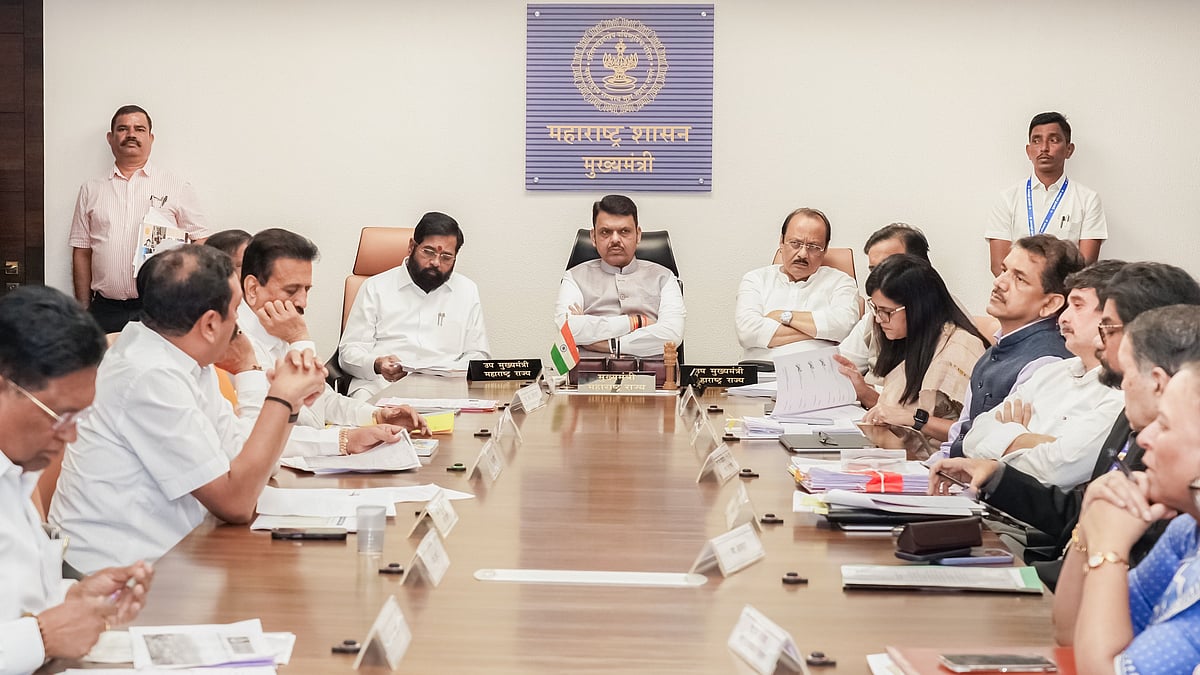It may be significant that on the day that the media went to town on the worst Sino-Indian clashes in more than four decades, the papers also reported that China’s Great Wall Motors had signed an MoU with the Maharashtra government to invest Rs 3,770 crores in an automobile plant near Pune. The message is loud and clear: India and China, which together account for more than 2.7 billion people, are key markets for each other's firms and need each other for continued prosperity.
A second even more compelling – although not so loudly bruited about – message is that the profit motive protects China’s investments in this country. India law requires foreign investors to be partnered by Indian nationals. Inevitably, the partners are the richest and most influential businessmen with powerful political leverage. Their weight can be inferred from the recent order by the High Court of England and Wales to India’s Reliance Group chairman Anil Ambani to pay nearly $717 million to three Chinese banks as part of a loan agreement. Another tycoon, Gautam Adani, is chairman of a consortium involved with East Hope Group, one of China's largest private companies, in setting up manufacturing units at the Mundra SEZ.
China is India’s second biggest trading partner. But the trade is heavily weighted against India. In 2018-19 India’s exports to China were worth a mere $16.7 billion. Imports from China during the same period were valued at a substantial $70.3 billion. The enormous trade deficit of $53.6 billion is a source of constant political and economic embarrassment to India’s leaders.
The need now is for mature responsible leadership in both countries to ensure that differences on the 3,488 kilometre border do not fester into disputes and that politics does not come in the way of economics. Of course, India must look after its own interests and expand exports to China (especially of pharmaceuticals in which India has a global advantage) to narrow the present yawning trade gap. But not having distinguished himself so far in his demonstration of leadership qualities, Narendra Modi must not try to make up for past failures by striking a belligerent pose. Similarly, Xi Jinping must resist the temptation to seek compensation for China’s other difficulties at home (Tibet, Xinjiang) and abroad (the US, European Union, Australia, South China Sea, Taiwan and World Health Organisation) at India’s expense.
One source of annoyance in India is the 2017 China Intelligence Law which makes it mandatory for Chinese suppliers to share data and access to any place in the world where such equipment is installed. To put it bluntly, China-based companies that have business dealings abroad are legally obliged to share their information with Beijing’s official intelligence-gathering institutions. No wonder Washington does not allow Huawei Technologies, the Chinese wireless network giant, to sell equipment in the US but India agreed last year to let it provide 5G gear in the world's number two wireless market. Alibaba operates data centres in India and is popular with consumers while Xiaomi enjoyed 29 per cent market share in India in the fourth quarter of 2019.
Understandably, as tensions run high after the violent clash in Ladakh that left at least 20 Indian soldiers dead – we have no idea as yet of Chinese fatalities – following a seven-week military standoff between the two nuclear-armed powers, a first set of actions should have been initiated against Chinese businesses in the country. The Swadeshi Jagran Manch wants the Shanghai Tunnel Engineering’s lowest bid for an underground stretch of the Delhi-Meerut Regional Rapid Transport System project rejected. The Confederation of All-India Traders has released a list of more than 500 Chinese products to be boycotted.
The Ladakh clashes themselves were an outcome of high nationalism; that having been said, they must take some toll of ordinary economic ties. It’s not just the Sangh Parivar and a particularly jingoistic ultra-patriotic TV channel that are urging people to boycott Chinese goods. More serious organisations are doing the same.
That in fact was the purport of the government amending the Foreign Exchange Management Act to curb investment from neighbouring countries (read China and Pakistan but more particularly China) by obliging any Indian startup looking to raise money from funds or individual investors there to have to take additional approvals from the nodal ministry. This followed changes in New Delhi’s foreign direct investment policy by mandating government clearance for all foreign inflows from countries with which it shares land borders.
These revisions were before the Ladakh hostilities. But they came amid reports of China trying to acquire distressed assets in different industry segments globally, with companies seeing a steep fall in their valuations because of the lockdown measures to combat COVID-19. Indian startups, including BigBasket, Paytm, Ola, Byju’s, MakeMyTrip, Zomato and Swiggy, have all raised large amounts of capital from Chinese investors in the past and are now likely to see a significant impact on their future fundraising activities.
“For companies that already have Chinese investors, raising additional financing from these investors will be subject to an approval process” according to a lawyer who advises Chinese investors in India. “The resultant uncertainty over government approval will certainly make those conversations more difficult…The core problem, however, would arise in situations of buy-outs/changes in control where substantial monies are sought to be invested at depressed valuations or for positioning oneself for control."
Before New Delhi imposed these curbs, Chinese and other foreign investors looking to buy equity shares in Indian startups took the “automatic route”, which didn’t call for any special nod from Indian regulators. Even if a fund is not registered in China, but the owners of the fund are Chinese nationals, then investments from these funds will require approval.
A Chinese engineering major is set to lose a significant contract with Indian Railways, and the Department of Telecommunications has asked state-owned Bharat Sanchar Nigam Ltd not to use Chinese-made equipment in the upgradation of its 4G facilities. The clash between Indian and Chinese troops adds another layer of uncertainty to companies already reeling from the coronavirus pandemic. Firms from Alibaba and Xiaomi to Tata Motors that have customers – and investors – in both countries face disruption. A gamut of companies importing parts or capital from China will have to find alternative sources if tensions escalate.
India’s consumers want inexpensive Chinese manufactures and India’s economy needs Chinese capital. Even if they didn’t, it would remain in the interest of India’s corporate giants who inspire and influence many policy decisions to ensure that no matter how many soldiers are killed in the bleak windswept heights of Ladakh, the business connection with China continues. The Ambanis and the Adanis rule the roost.
The writer is the author of several books and a regular media columnist.









